What to Buy in Uzbekistan
Uzbek Souvenirs
A significant part of your trip can be buying some kind of memory for yourself or for your close ones from your unforgettable voyage. Uzbekistan is an excellent place to buy souvenirs with a wide variety of local made souvenirs available. Uzbek artisans have again started to pass on the secrets of craftsmanship from generation to generation and their works are of high quality and of extraordinary taste.
Metalworkers, potters, weavers, carvers, and many other skillful hands create works of art from silk, clay, wood, and metal. Many Uzbek products are known and popular throughout the world thanks to their smooth lines, geometrically perfect patterns as well as the composition of the design that appeals to the eye. You will always have the chance to purchase souvenirs during our Uzbekistan Tours and Central Asia Tours.
Uzbek Ceramics
Traveling through the different cities of Uzbekistan, you’ll find that each place has its style of ceramics as is also with Uzbek food. The schools in each region differ from those in others. The differences are shown in the colors, designs, shapes, and ceramics techniques. Rishton, in the Fergana Valley, is particularly famous for its ceramics. The artisans there use a special blue glazing, called “ishkor”. Ishkor is made from natural minerals and plants and gives the ceramics from this school a special blue tint that is not found anywhere else.
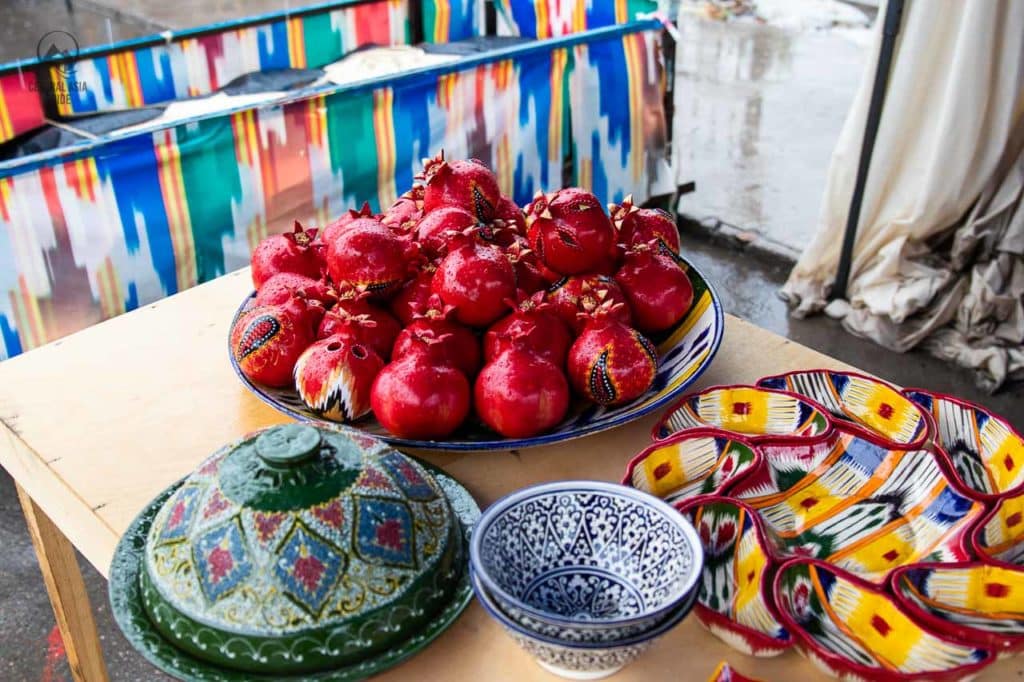
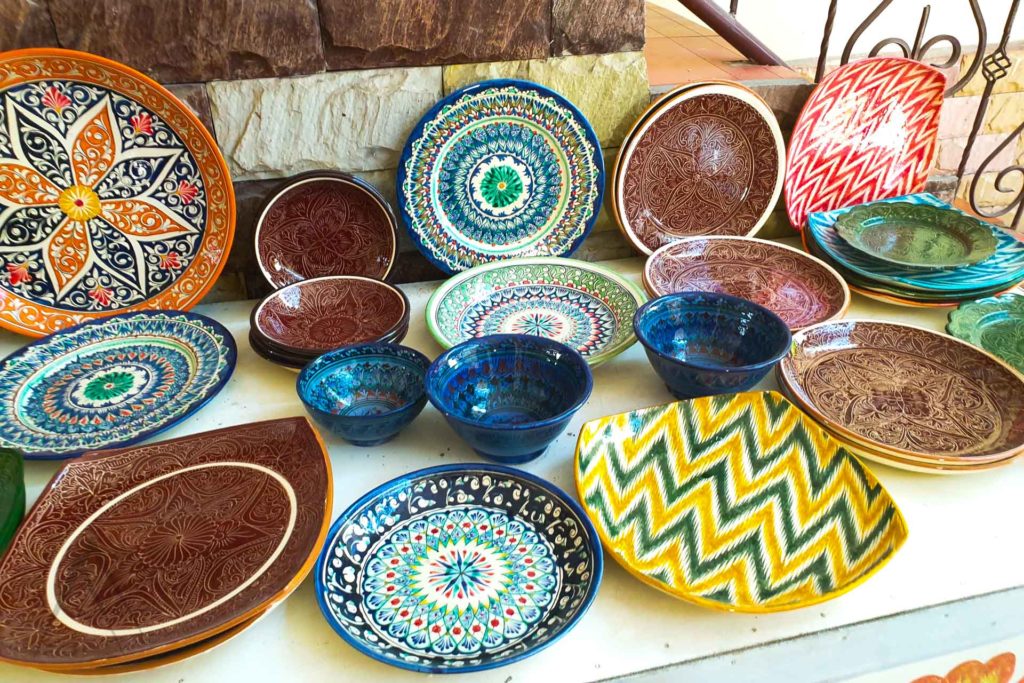
Uzbek Knife
A traditional Uzbek knife from Chust is one of the best souvenirs one can buy from Uzbekistan. Chust knives have unique features with their straight and wide blade with excellent blade quality and a handle made by hand and they are made with special inspiration. The knives bought for tourism/gift purposes have a golden marking on them, that will guarantee there are no any issues with the customs when exiting the country. A proper knife merchant should always also provide you with documentation telling about the producer of the knife.
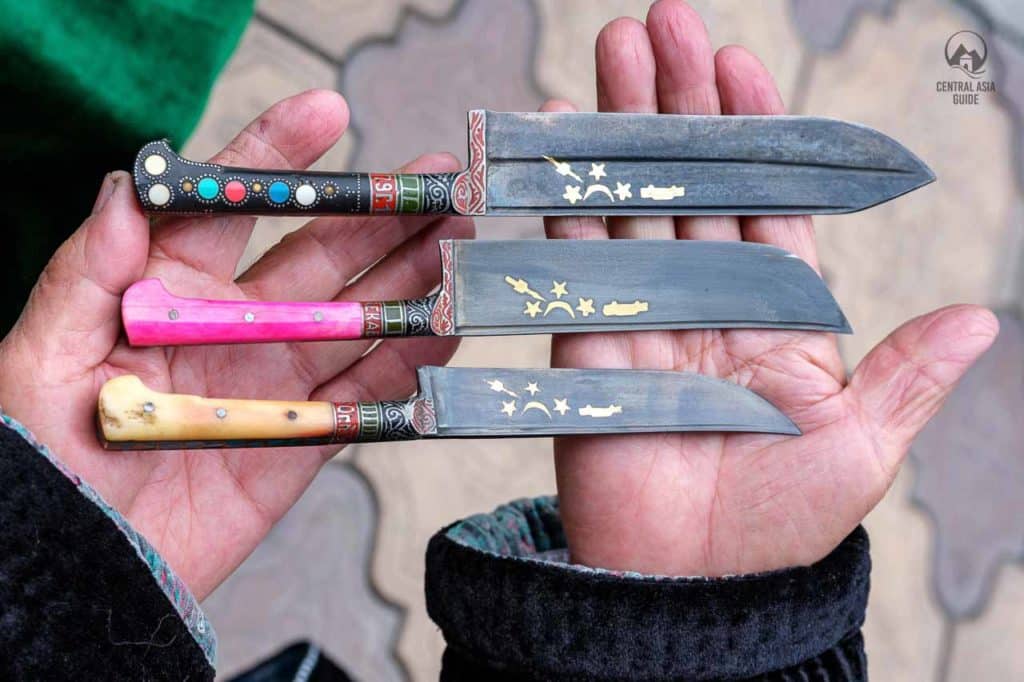
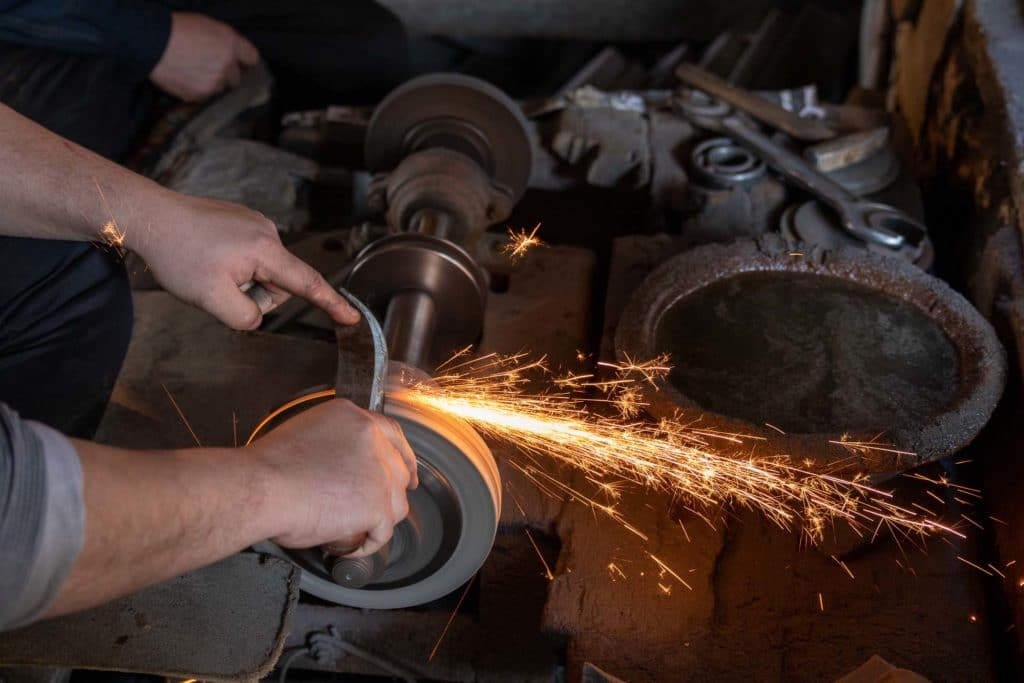
Doppi - Tyubiteyka hat
Uzbek hats come in many colors and forms. There are different doppi hats for men and women, ages, status and so on but what is best for a tourist that you do not really need to mind the rules but can get instead the hat that looks the best for you.
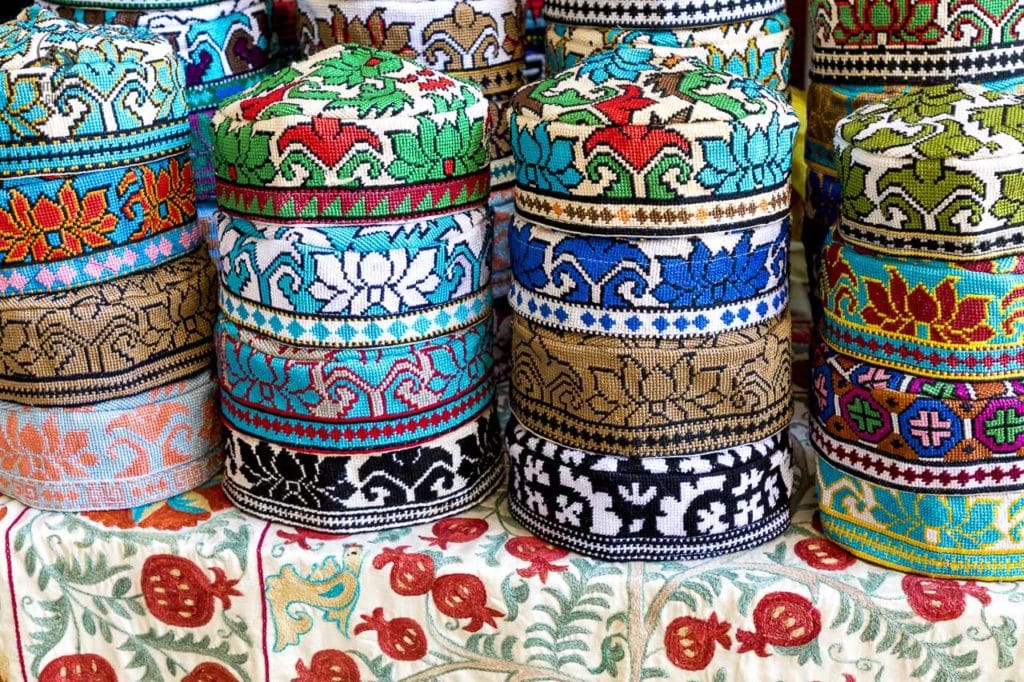
Uzbek Silk
Uzbek silk is of the highest quality in Central Asia. There is almost an endless amount of colors and patterns made with different techinques to choose from. One of the best places to buy Uzbek silk is in Margilan, which a center of silk production in Uzbek Fergana valley.
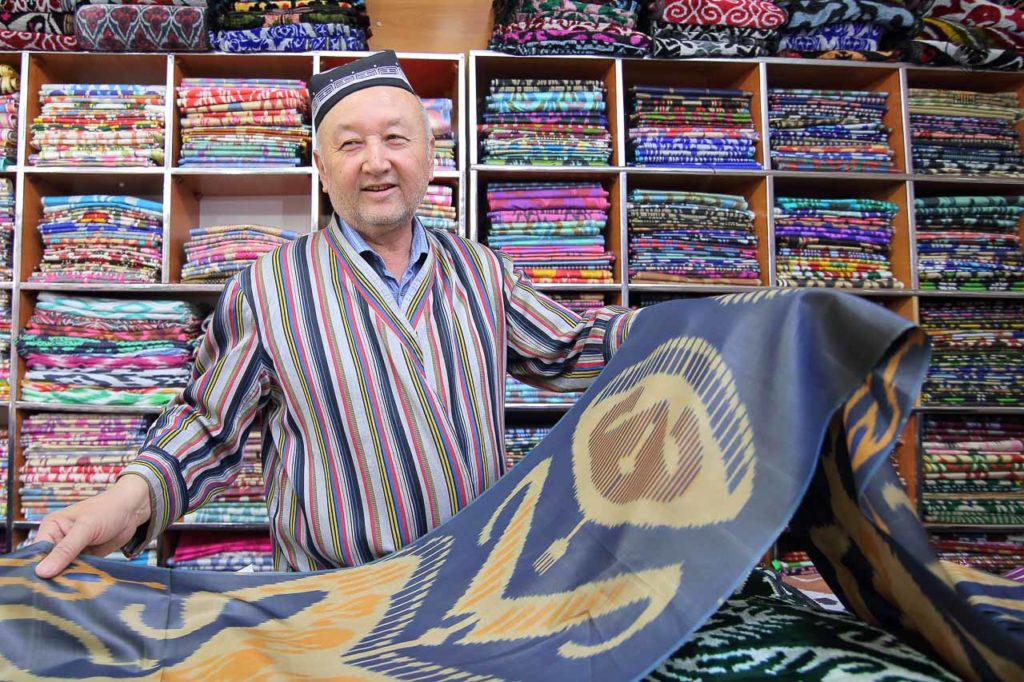
Uzbek Musical instruments
There are many different music instruments in Uzbekistan. Several of them are stringed instruments but the most known one is the long commonly brass made horn called Karnay that is used in weddings and welcoming the pilgrims back to Uzbekistan and during other festivities. Uzbek musical instruments are not often bought as souvenirs as they are quite large but it does not mean they would not be sold for tourists.
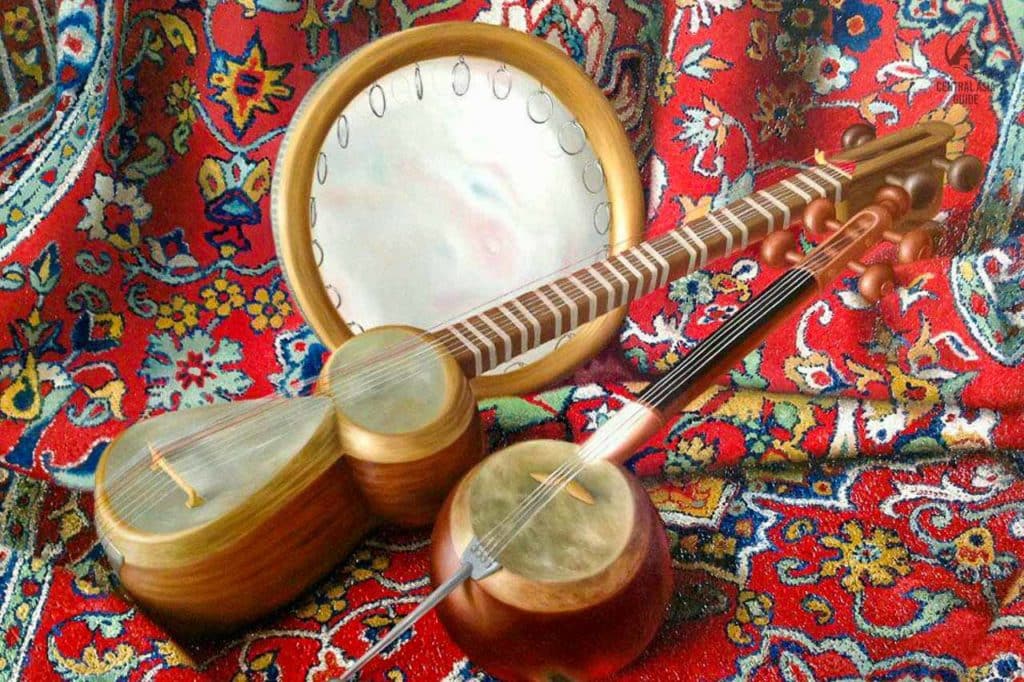
Uzbek Metal art
Uzbek metal art (metal chasing) is an ancient type of applied art that has been practiced in the area for millenniums. The work is usually carried out by carving ornaments for the decoration of handmade copper and brass plates. You will often find metal workshops especially in Bukhara and Khiva. Cheaper souvenirs also include painted metal plates as the metal embossing takes a lot of skill and time.
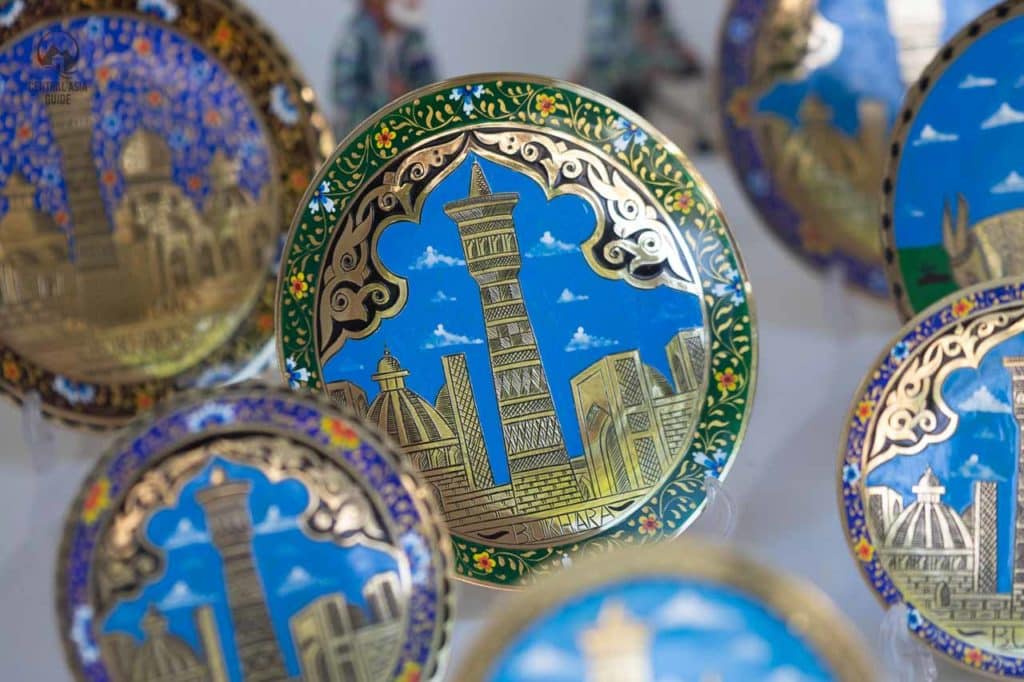
Uzbek Wooden crafts
Jewelry boxes kuticha, bookholders lavhi, carved tables, small “secret puzzle” boxes and other beautifully carved small items make great souvenirs. The ornaments are floral and geometric, according to the Islamic beliefs. There are also more simple carved wooden items meant mostly for kitchen. Uzbek carvers used wood of such trees as elm, walnut, sycamore, juniper, mulberry. Khiva, Bukhara, Samarkand, Tashkent and Fergana are the renowned centers of woodcarving.
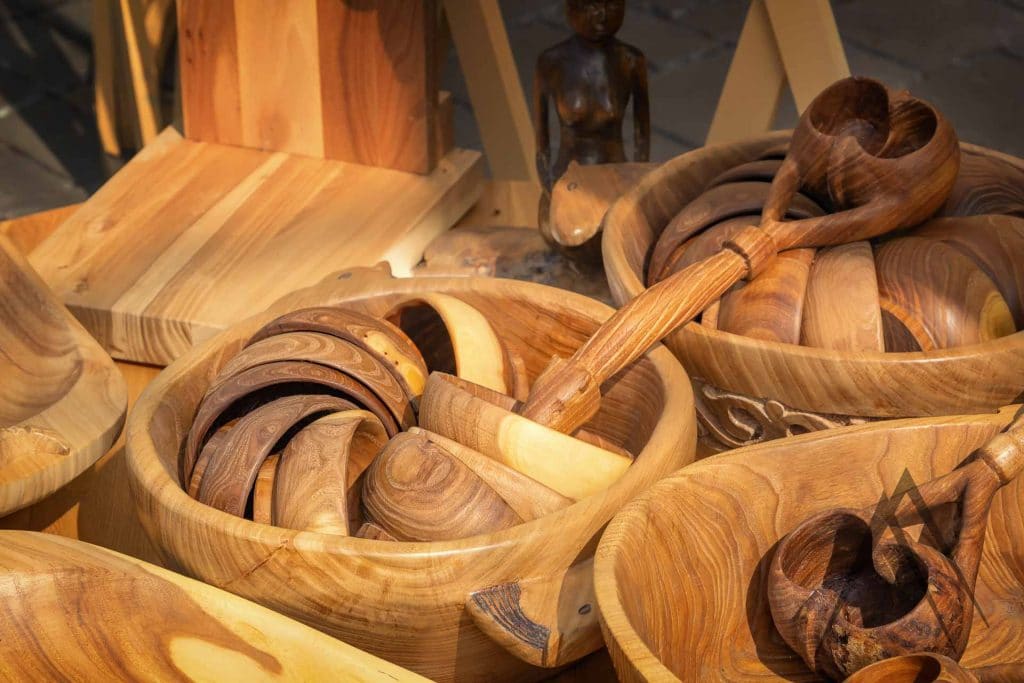
Uzbek wool carpet
Wool carpets are actually more common in Kyrgyz culture but especially in Fergana valley one can also find few places where they are being produced. In Fergana valley they are also often produced by ethnic Kyrgyz people. Wool carpets tend to be quite thick and therefore a bit heavy but there are also carpets in smaller sizes that will easily fit in your luggage. Wool carpets are mostly decorated with traditional ornaments with details depending on the area they are produced in.
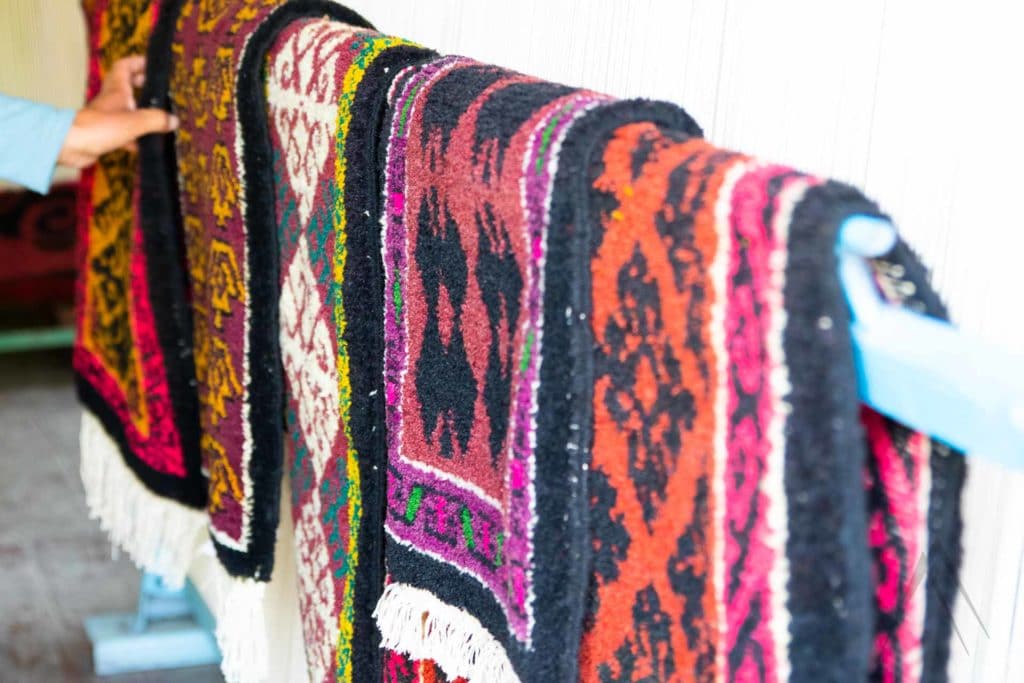
Uzbek Puppet dolls
Nowadays Uzbek puppet dolls are mostly made of painted papier-mache, wood and clay. Costumes for dolls are sewn from textiles made in the traditional Uzbek national style (Atlas). The craftsmen have their specialized technologies for both cutting and embroidery. Puppets can be found in many bazars and from the street sales in Bukhara and Khiva.
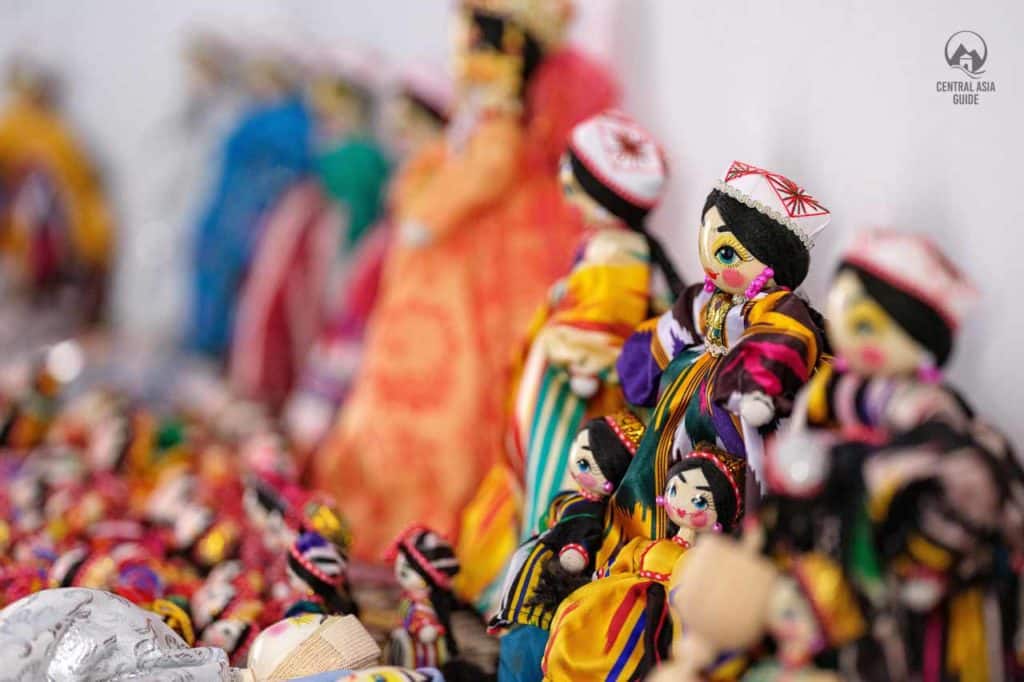
Uzbek Chapan
Uzbek Chapan, worn by both men and women, is made of lightweight silk or cotton. It often features vibrant colors, intricate patterns, and delicate embroidery, offering a blend of elegance and comfort. Chapan can protect you from cold and heat in the continental climate of Uzbekistan with hot days and sometimes cold nights.
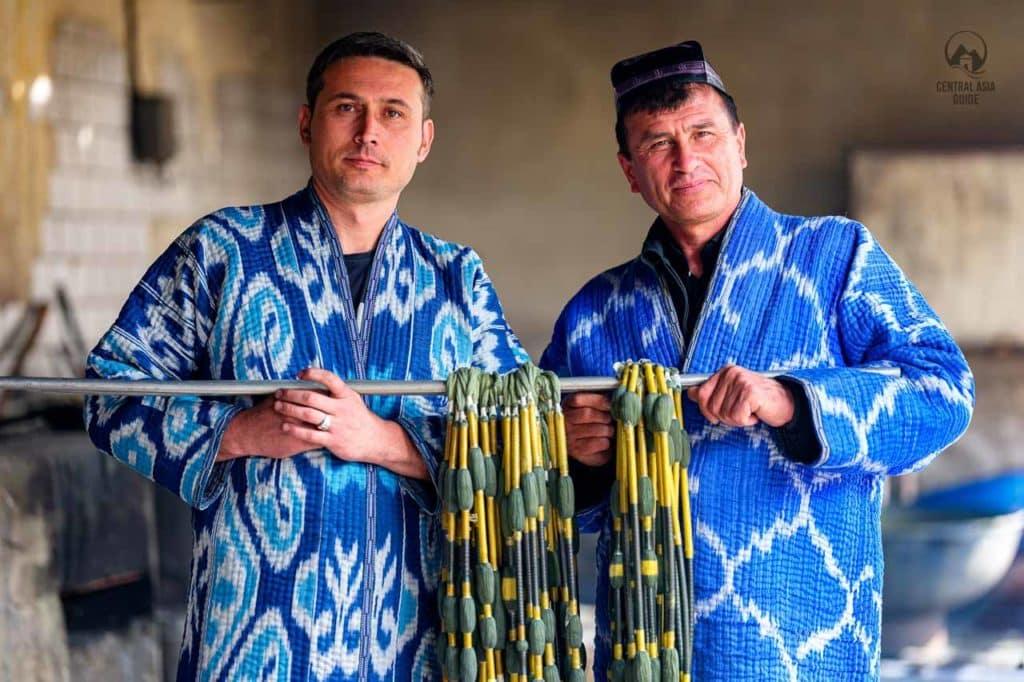
Uzbek Jewelry
The ancient Uzbek traditions of jewelry are being revived by families of masters who in spite of low demand in the 20th century continued their work. Jewelry shops again display gold and silver articles, made in Uzbek classic and sometimes extravagant style. Craftsmen also unite creating craft centers. Year by year the interest to the unique style of Uzbek jewelers increases even abroad.
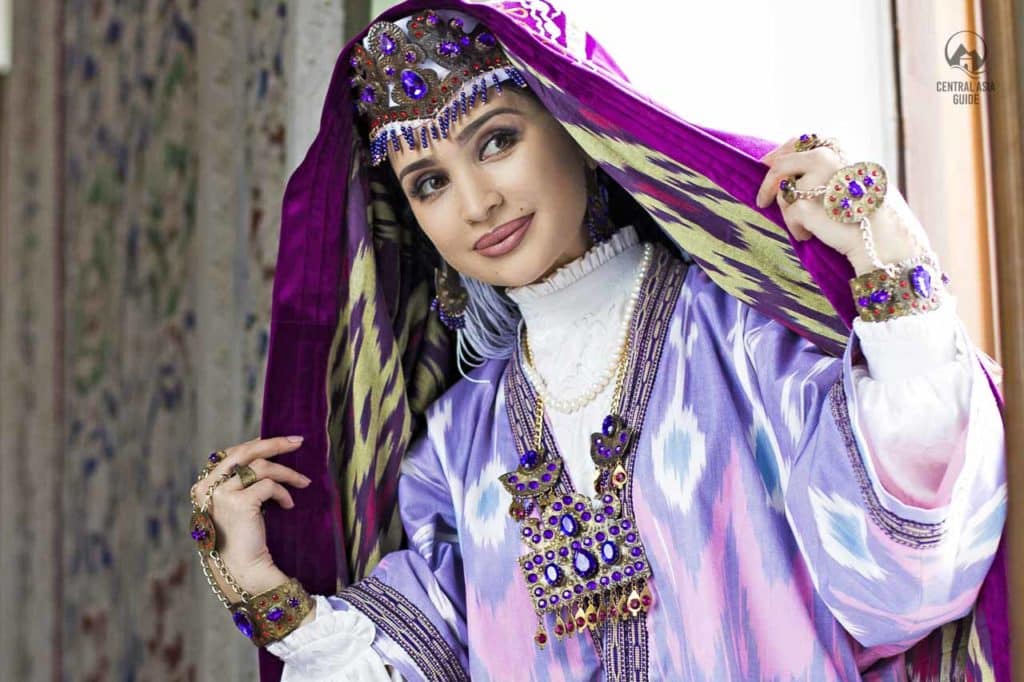
National clay figurines
Uzbek national toy figurines are traditionally made of clay and they often act as whistle toys in the form of domestic of fantasy animals. “Babaychiki” brightly-painted figures of funny little men in Uzbek national costumes have became a brand of Uzbekistan. Each figure is a work of art and is not similar to each other but is often an old man with a bright yellow cake and teapot in his hands or holding a watermelon.
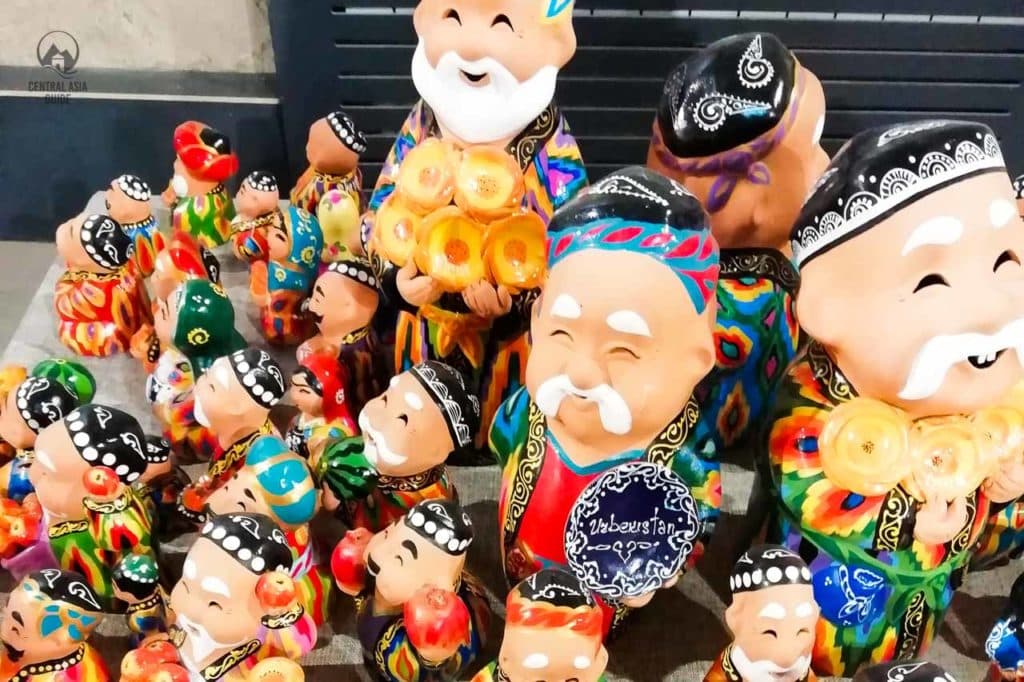
Dried fruits, nuts, and local sweets
Dried fruits are sold in every bazar in Uzbekistan and Central Asia. Make sure that you have a taste before buying. It is completely ok to ask for a bite of every product you are considering to purchase. Nuts are also very good in Uzbekistan, especially during the harvest time.
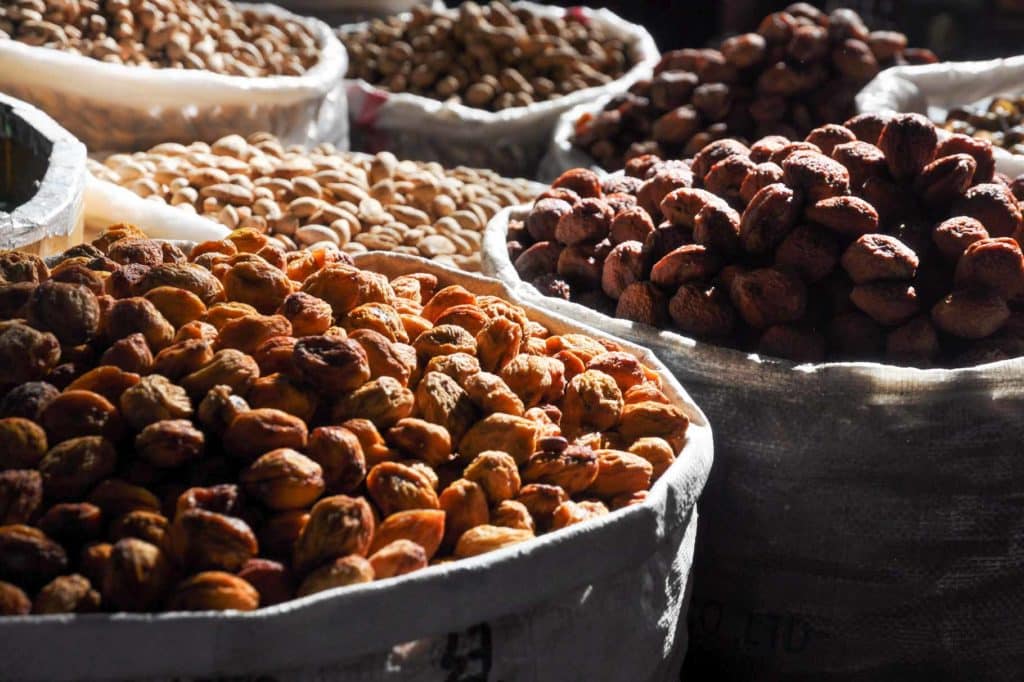
Samarkand wine
Wine production in Samarkand region has long traditions but the wines here are mostly inclined towards the sweet side. If you have the time, it is also possible to take part in a wine tasting to check before making the decision to buy.
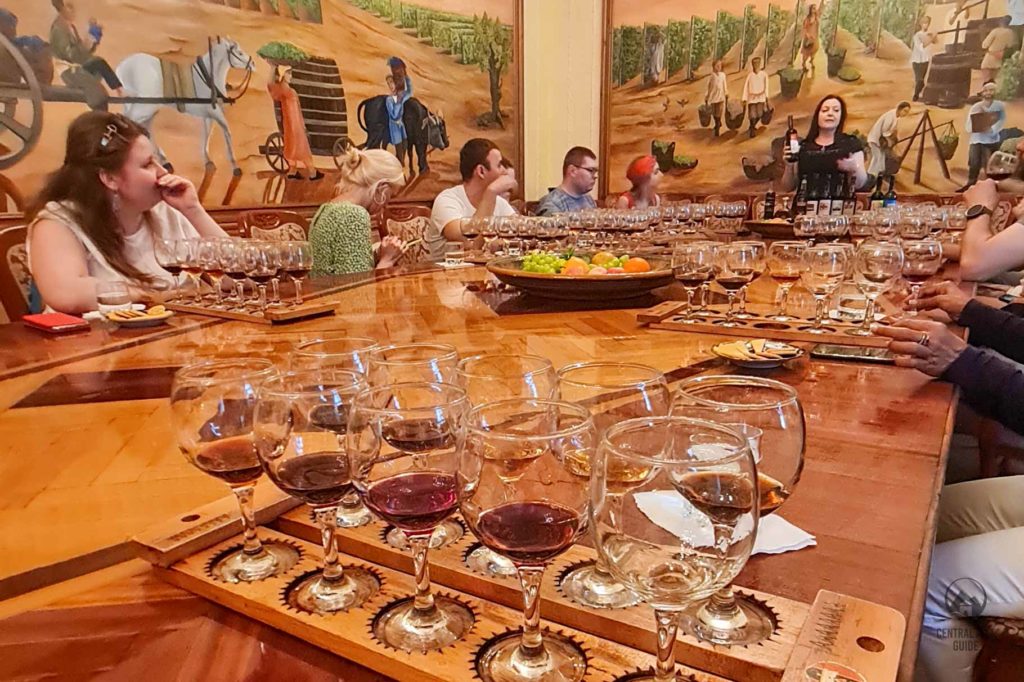
Uzbek bread stamps
Uzbek bread stamps are a good small sized souvenir from Uzbekistan. They are traditionally used to create the beautiful patterns of the local, usually tandyr made breads that are offered on most of the meals.
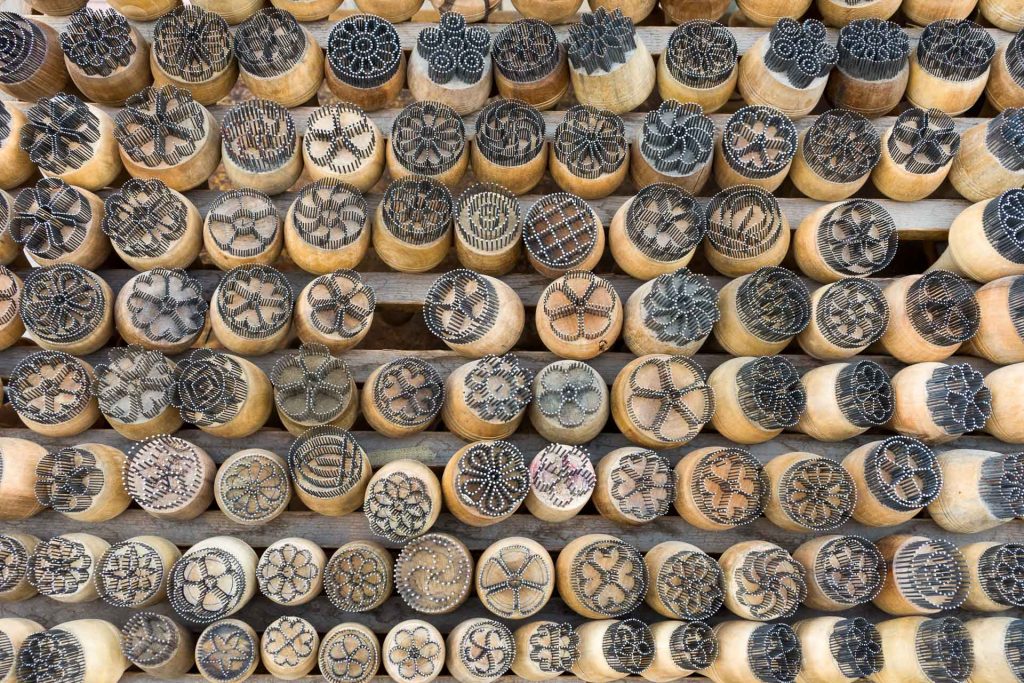
Soviet memorabilia
Soviet memorabilia are still available in abundance in Uzbekistan like in most of the post Soviet countries. Different medals and other signs of recognition are the most well known and easy to carry with you.
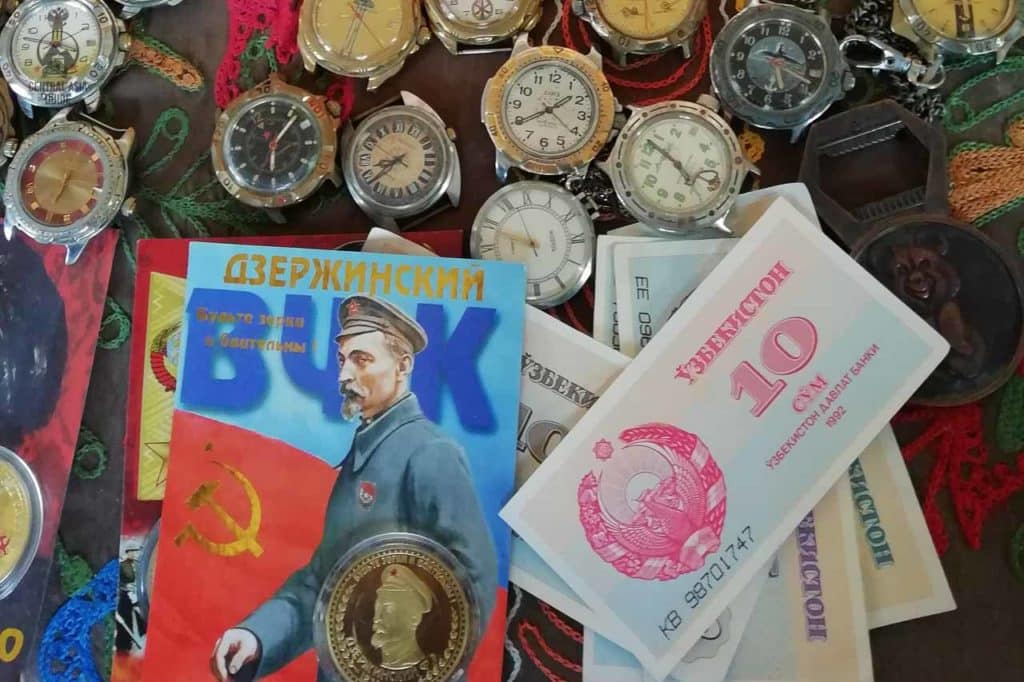
Uzbek Halva
Uzbek halva, also known as “qurutob halva” or “qurut halva,” is a traditional sweet made from a mixture of flour, oil, sugar, and halva, which is a sweet confection made from sesame seeds.
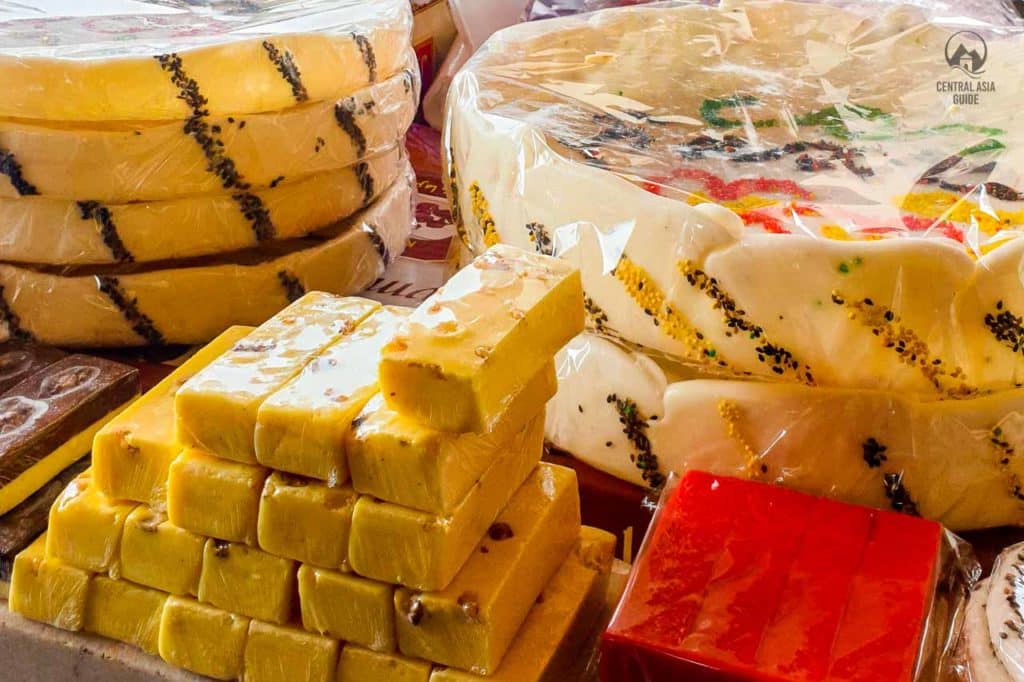
Uzbek Traditional Women's Dress
The traditional dress for women in Uzbekistan (and Tajikistan) is called “Atlas.” It is a long, loose-fitting garment made of silk or cotton. It has usually bright, bold colors and patterns like flowers or other plants.
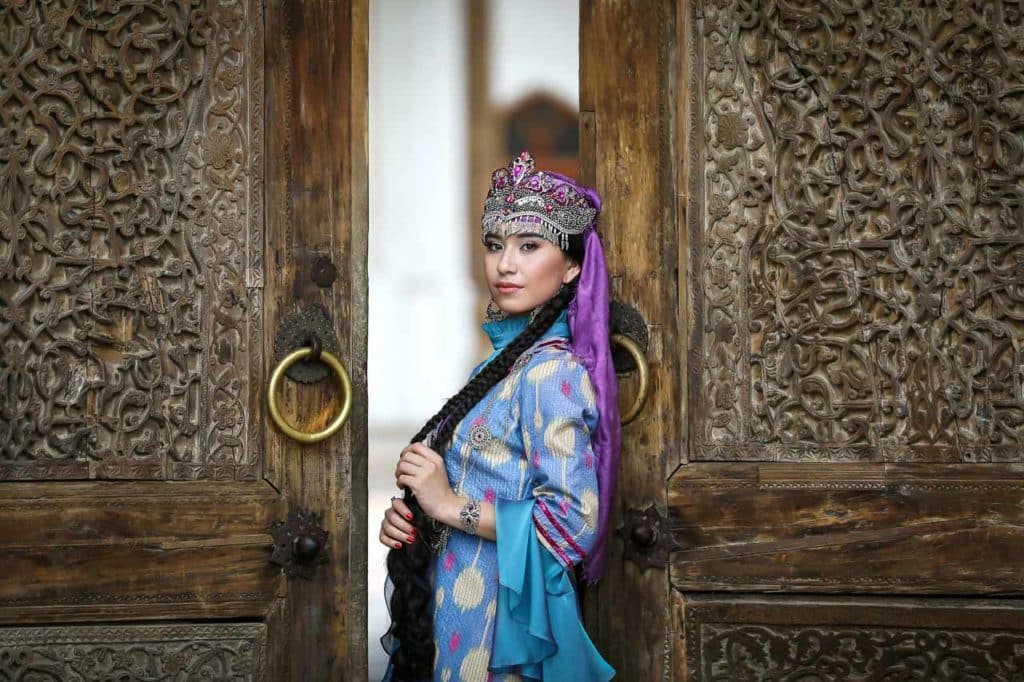
Samarkand silk paper
Samarkand silk paper is a unique Uzbek handicraft known for its smoothness, color, and quality. Paper production in Samarkand rose after the 8th century, and Samarkand became the Central Asian center for silk paper production. The best place to buy Uzbek silk paper is in the Samarkand paper factory that still uses the traditional methods.
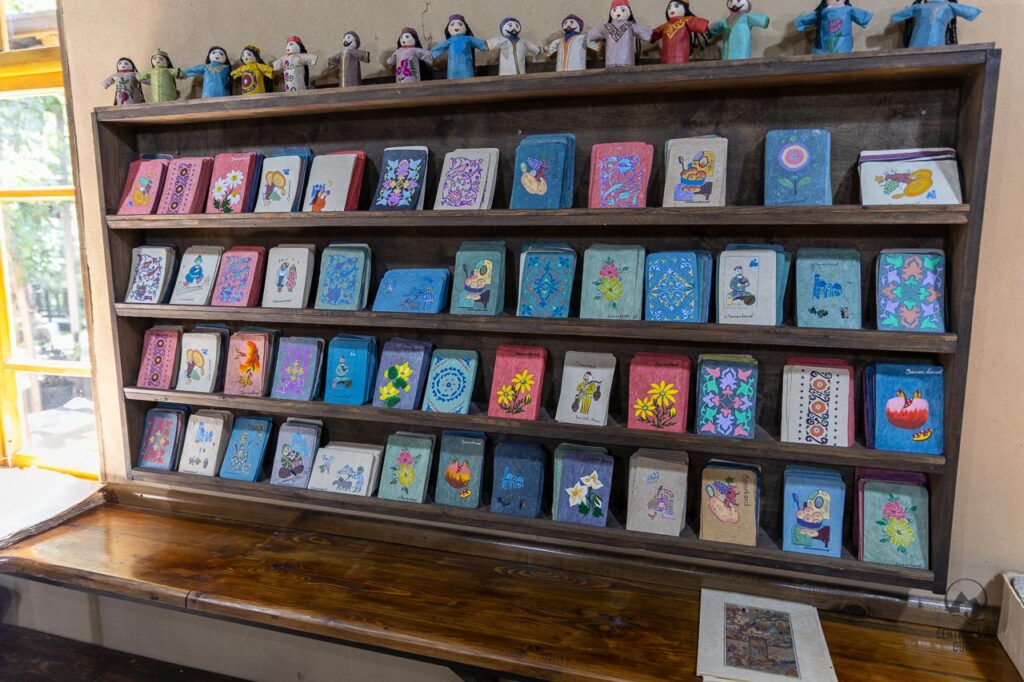
Uzbek Miniature paintings
Uzbek miniature paintings (lacquer painting), inspired by Persian art, are another delightful souvenir to consider. These intricate works often depict scenes from classical literature, historical events, or everyday life in Uzbekistan. As you visit workshops or stalls in the bazaars, you’ll be able to see artists at work and even commission your own custom piece.
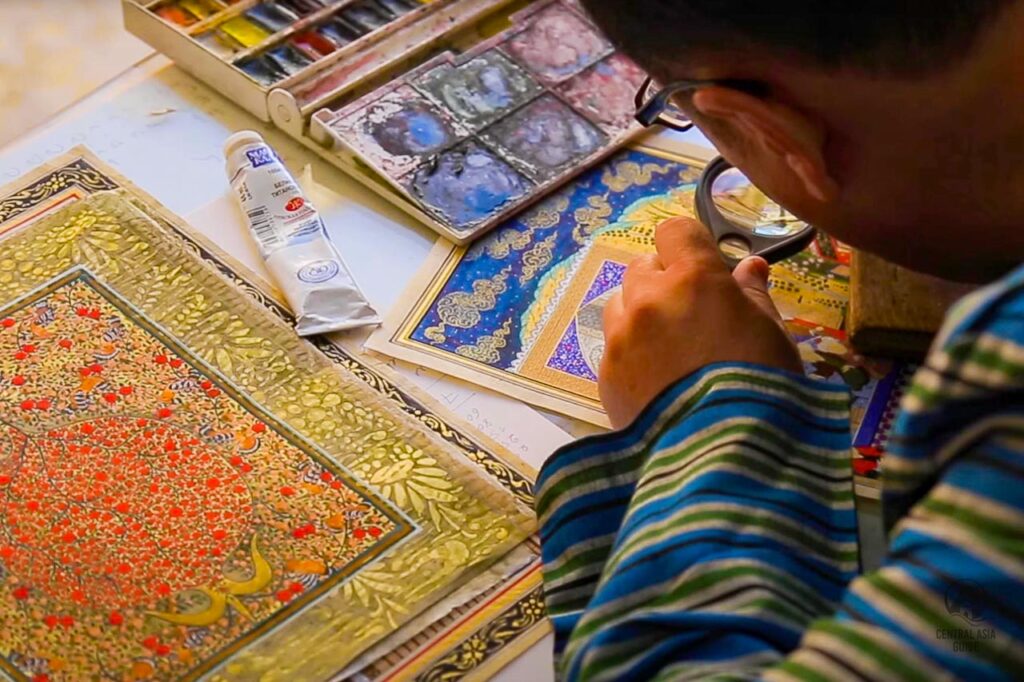
Uzbek Ikat textiles
Among Uzbekistan’s most iconic crafts is ikat which is created through a labor-intensive process by dyeing the threads before weaving resulting in a soft blur in the finished textile pattern. This method is centuries old, and best preserved the Ferghana Valley, particularly in Margilan. The silk and cotton threads are tied, dipped, and woven by hand into bold, abstract designs that once adorned royal robes and are still worn with pride today. When both the warp and weft threads are made entirely of silk, the resulting fabric is called atlas and when including cotton, adras.
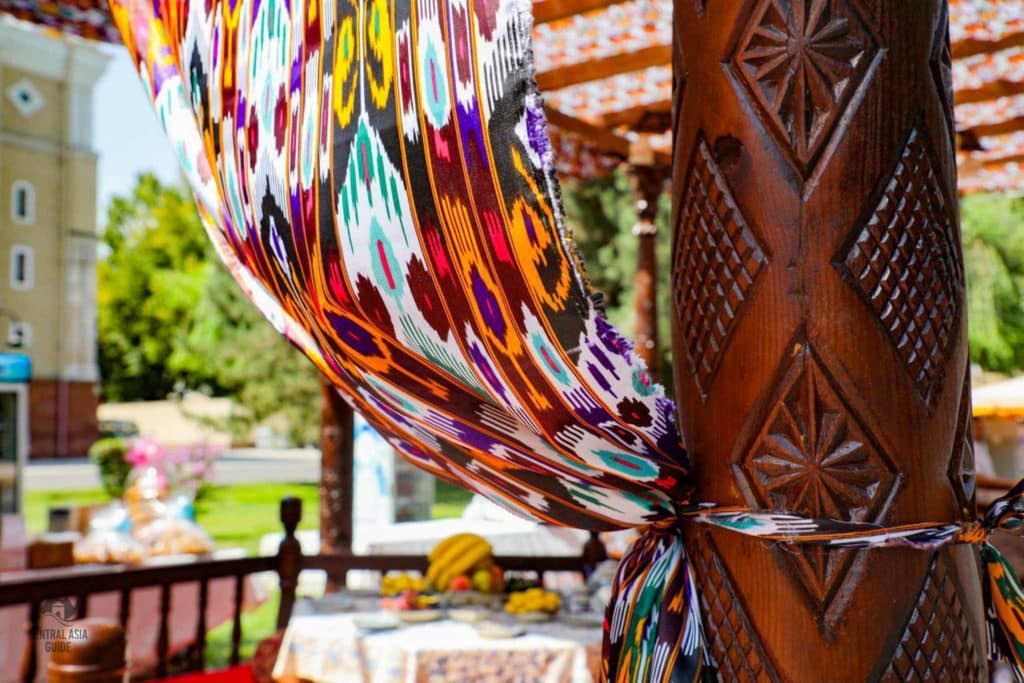
Uzbek embroidery
Suzani (needle) embroidery is one of Uzbekistan’s most expressive and beloved textile arts. Traditionally made by brides and their mothers as part of a dowry, suzanis were used to adorn wedding beds, wall hangings, and ceremonial spaces. Today, artisans embroid vibrant motifs onto pillowcases, shopper bags, table runners, and other souvenirs. Even though the formats have changed, the spirit remains the same and each stitch is still a thread connecting the present to the past, and every piece carries the quiet elegance of Uzbek culture into everyday life.
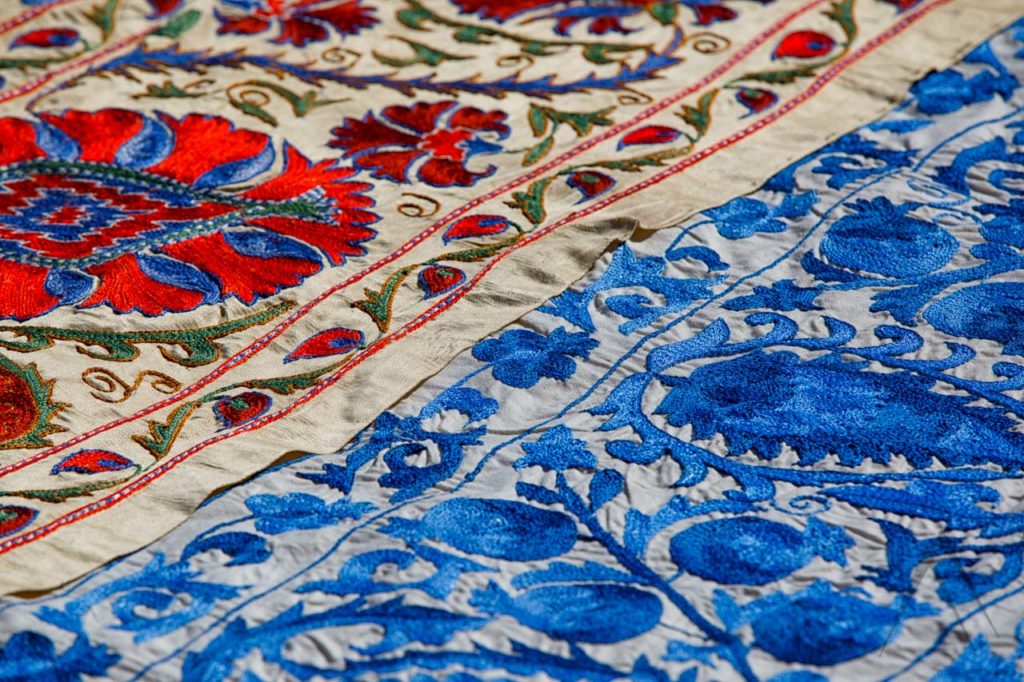
Souvenirs from Other Central Asian countries
Page updated 10.4.2024